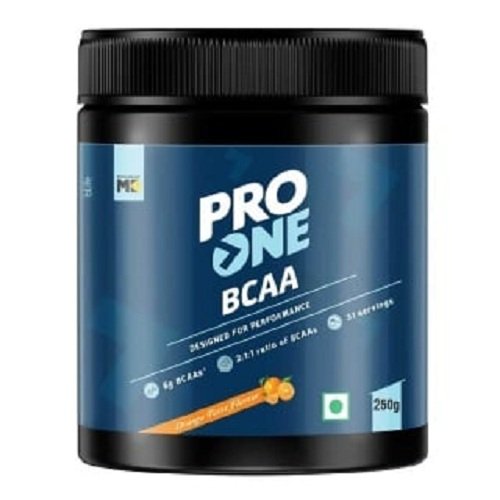If you’re into fitness, you’ve probably heard of BCAA powder or tablets as pre-workout supplements. BCAA is a protein supplement that has dominated the fitness market in recent years. Do you want to learn everything there is to know about the BCAA bodybuilding supplement? Let’s take a deeper look to learn everything there is to know about BCAAs, including how they function, their numerous health advantages, and how you should take this supplement.
What is BCAA?
Three of the nine necessary amino acids are known as Branched-Chain Amino Acids (BCAAs), and they are leucine, isoleucine, and valine. The term “branched-chain amino acids” refers to the molecular structure of BCAAs, which are commonly found in protein-rich meals such as meat, dairy products, and eggs. The protein extract contained in these foods is marketed as a powdered nutritional supplement.
What does BCAA do?
BCAAs are necessary amino acids, which means they cannot be produced by the body, yet they are responsible for more than one-third of the protein present in human muscle tissue. Supplemental BCAAs are also widely accessible and often utilised in sports nutrition. BCAAs are distinct in that, unlike most other amino acids, they are predominantly metabolised inside the muscle rather than being broken down by the liver. A high-protein diet combined with BCAAs can boost your body’s rate of muscle protein synthesis.
- Rapid Absorption: BCAAs enter the bloodstream quickly, bypass liver breakdown, and are easily absorbed by active tissues.
- MoreFuel: Because BCAA breakdown for energy increases with extended exercise, BCAAs give an additional fuel source for active muscle. BCAAs also play an important role in total protein turnover, which means they help regulate whether the body is in a catabolic (tissue destruction) or anabolic (tissue building) state.
Benefits of BCAA
Reduces fatigue
According to research, BCCAs might slow the rate at which you fatigue from exercise. Of course, there are numerous elements in every workout that might contribute to this — intensity, length, and fitness levels, to mention a few — but BCAAs help restore levels of tryptophan in your brain, a molecule that converts to serotonin during exercise and produces fatigue.
Decrease muscle soreness
BCAAs can significantly reduce muscle pain after an exercise. It is normal to feel sore for a day or two following a workout, especially if your fitness routine is new.
The soreness that people experience is known as DOMS, or Delayed Onset Muscle Soreness, and it usually appears 12 to 24 hours after a workout and can continue up to 72 hours. BCAAs have been shown to reduce muscle soreness and injury, therefore lowering the intensity of DOMS.
Increase muscle mass
BCAA supplements have been shown to be helpful for growing muscle growth, particularly when the Leucine concentration is higher than the Isoleucine and Valine levels. It is recommended to take a BCAA supplement that contains all three necessary amino acids in a 2:1:1 ratio.
Helps in building muscle
One of the most significant applications of BCAA is to enhance muscle development. Leucine aids in the activation of a certain pathway in the body that promotes muscle protein synthesis, which is the actual process of building muscle, by activating a specific route in the body. Several studies show that using BCAA supplements might help you gain muscle growth and strength while working out.
Other benefits
- If you are malnourished or have cancer, increase your appetite.
- Preventing liver cancer in persons with cirrhosis.
- Treating specific brain diseases.
- Reduce the severity of tardive dyskinesia symptoms.
- Improve mental function in patients suffering from phenylketonuria.
Recommended dosage
A common BCAA dosage for muscle building is up to 20 grammes per day in split doses. This figure looks to be adequate. If you are taking BCAAs for a reason other than muscle building, your doctor will advise you on the appropriate dosage.
Side effects
BCAA supplements have not been related to significant side effects when used for up to 6 months. However, the following adverse effects are possible:
- Nausea
- Pain
- Headache
According to some study, there may be a relationship between BCAAs and certain illnesses, such as:
- Diabetes: According to the source, elevated BCAA levels may be indicators of type 2 diabetes. However, it is unclear if they have a role in the development of insulin resistance.
- Problems with the liver: According to one source, there is a link between high BCAA levels and nonalcoholic liver disease and liver damage.
- Cancer: According to several studies, there is a connection between BCAA metabolism and cancer.
- The illness of the heart: According to the source, high amounts of BCAAs may be a risk factor for heart disease.
It is not suggested that you use BCAAs if you are pregnant or nursing. Because it is unethical to conduct tests on pregnant women.
Conclusion
BCAAs are required amino acids. Because the body cannot produce BCAAs, they must be obtained through food or supplementation. According to research, consuming BCAA supplements may increase muscle growth and performance as well as prevent muscle damage from exercise. BCAAs may also help patients who have liver problems. There are multiple brands available for BCAA but the best is ScivationXtend BCAA. It is one of the most sophisticated BCAA formulations on the market. Because of its potential to improve training performance, it is widely recommended by experts for athletes and bodybuilders. It allows you to get the most out of each session by avoiding muscle fatigue and breakdown while working out



